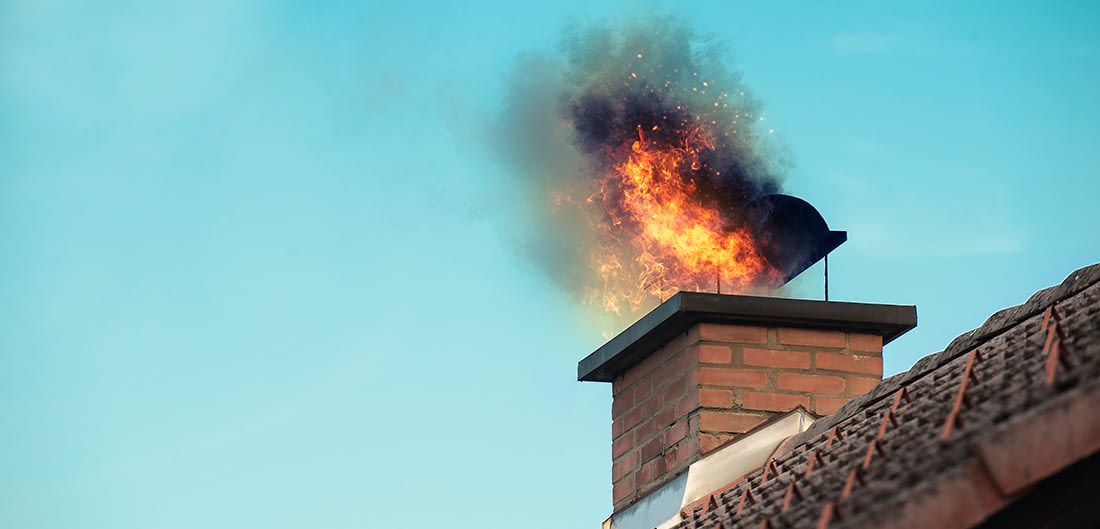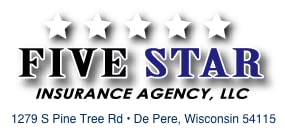
The fireplace often serves as a warm and inviting place for families to gather. However according to the National Fire Protection Association, between 2016 and 2020, fireplaces and chimneys were responsible for seven percent of residential fires in the United States. Despite accounting for only seven percent, chimney fires were responsible for more than $200 million in property damage.
Figures like these underscore the need for an annual chimney inspection. This is true even for homeowners who don’t frequently use their fireplaces: other heating devices in the home also release potentially toxic gasses through the chimney. Without the clear ventilation of a well-maintained chimney, those gasses can remain in the home.
Why You Should Get a Chimney Inspection
Chimney fires often result from the accumulation of creosote, a byproduct of burning wood — particularly green or soft wood. The unnoticed build-up of this sticky substance within uninspected chimneys creates an environment in which an otherwise sturdy-looking chimney is primed for a damaging fire.
Even without a fire, ignoring creosote buildup can result in costly repairs. But, in the unfortunate event of a fire, it can result in the loss of your home.
If you’re a do-it-yourself kind of homeowner, it may be tempting to clean your chimney yourself, but the use of professional services is a far better option.
According to Forbes, the average cost of chimney service costs is about $250 — varying based on the level of inspection you require. While this might cost a bit more than the DIY option, the thorough examination and maintenance offered by a chimney professional helps to eliminate costly mistakes that can haunt the home-repair enthusiast.
Professionals can accurately measure crucial components such as the size of the firebox and the clearance from a wood stove. Then, once the status of your chimney is professionally assessed, a certified inspector can recommend whether your chimney needs sweeping and what type of sweeping is most appropriate.
So, what kind of inspection will you need: level one, level two or level three?
Level One Inspection
If you regularly maintain your chimney, a level-one inspection may suffice. During a level-one inspection, a professional will:
- Spend approximately one hour measuring all readily accessible components.
- Determine if your chimney needs sweeping based on factors such as debris blocking air ducts and creosote buildup.
Level Two Inspection
If you’re a new homeowner or haven’t had a level-one inspection, the additional detail of a level-two inspection can offer additional peace of mind.
A level two inspection includes all of the requirements of a level one inspection, as well as the following:
- Inspection of accessible areas of attics, basements and crawl spaces
- Inspection of accessible areas of the chimney exterior and interior
- Inspection of accessible portions of any appliance and chimney connection(s)
- Video scanning, or other thorough inspection, of the flue interior
- Evaluation of the flue lining to determine if the material & sizing is appropriate
Level Three Inspection
This is the most extensive of inspections, and the one you’re least likely to need unless your chimney was extremely damaged.
This inspection is necessary whenever a level one or two inspection indicates hidden problems in your chimney or that special tools might be necessary to access concealed areas. It may also involve tearing out building materials to reach the potential problem areas of your chimney (like tearing out the drywall around your fireplace).
So, once you’ve settled on the idea of professional chimney service, who do you call?
Finding a Qualified Chimney Sweep
The Chimney Safety Institute of America (CSIA) lists more than 1,300 professionals who have earned the CSIA Certified Chimney Sweep® Credential. This credential signifies a superior understanding of the tools, techniques, and processes needed for a thorough chimney inspection.
The certification is more than just proof of knowledge: all CSIA-certified sweeps pledge to uphold a code of ethics that obligates them to maintain their state-of-the-art knowledge and to properly educate their clients. To locate a certified chimney sweep near you, visit the CSIA home page.
Safe and Warm
Your home is one of your most valuable assets, and protecting it means taking steps like scheduling regular chimney inspections. Beyond safeguarding, proper chimney care also ensures the health and safety of you and your family.
Even with care and maintenance, though, the unexpected can still happen, and getting back to normal after a disaster can be difficult. Guaranteed Replacement Cost insurance from ERIE Insurance can help put the pieces back together just as they were. Speak with us today, and let us show you how to safeguard your lifestyle as well as your home.
ERIE® insurance products and services are provided by one or more of the following insurers: Erie Insurance Exchange, Erie Insurance Company, Erie Insurance Property & Casualty Company, Flagship City Insurance Company and Erie Family Life Insurance Company (home offices: Erie, Pennsylvania) or Erie Insurance Company of New York (home office: Rochester, New York). The companies within the Erie Insurance Group are not licensed to operate in all states. Refer to the company licensure and states of operation information.
The insurance products and rates, if applicable, described in this blog are in effect as of January 2024 and may be changed at any time.
Insurance products are subject to terms, conditions and exclusions not described in this blog. The policy contains the specific details of the coverages, terms, conditions and exclusions.
The insurance products and services described in this blog are not offered in all states. ERIE life insurance and annuity products are not available in New York. ERIE Medicare supplement products are not available in the District of Columbia or New York. ERIE long term care products are not available in the District of Columbia and New York.
Eligibility will be determined at the time of application based upon applicable underwriting guidelines and rules in effect at that time.
Your ERIE agent can offer you practical guidance and answer questions you may have before you buy.

